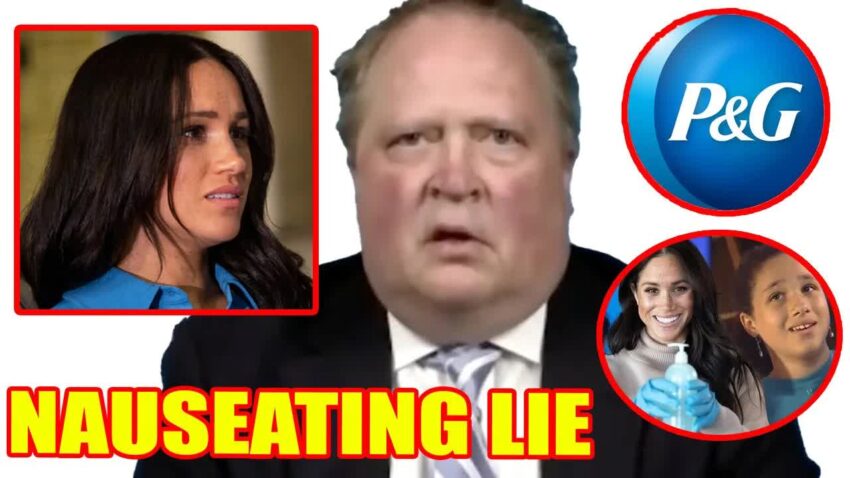In a narrative that has been shared countless times, Meghan Markle’s childhood letter to Procter & Gamble has taken on a life of its own, becoming a key element of her public identity.
This story, both straightforward and impactful, recounts how an 11-year-old Meghan penned a letter to the company, taking issue with a sexist advertisement for dish soap that implied only women should handle dishwashing.
Allegedly, her correspondence prompted a change in the ad, marking what Meghan often describes as her first foray into activism.
Yet, as this tale continues to gain traction, it has also sparked skepticism and questions, leading to whispers of potential legal action against Meghan.
Industry commentator Neal Shah has suggested that Procter & Gamble might be contemplating a lawsuit.
But what would drive them to take such a step?
On one side of the debate, Meghan’s story is celebrated as a testament to youthful resolve and the influence of one determined voice.
Conversely, critics argue that the narrative has been embellished or even fabricated over time.
Despite the swirling doubts, Meghan remains steadfast in sharing her account, framing it as a pivotal moment in her journey.
Interestingly, the roots of this story can be traced back to a school project rather than a solo mission by a young activist.
Meghan’s own retellings often highlight the roles of a classmate and her father, Thomas Markle—who has a background in television and advertising.
This has led some to question the authenticity of her portrayal, especially as she consistently positions it as her singular achievement.
Procter & Gamble has chosen to remain tight-lipped about the entire situation, never publicly addressing Meghan’s claims.
This silence has only fueled speculation.
Why hasn’t the company contested her version of events?
Perhaps they prefer to avoid revisiting a narrative that could harm their reputation, or maybe the key players involved have since retired, opting to steer clear of the media frenzy.
Legal experts suggest that Meghan’s careful recounting of her story may be a strategic move to evade legal consequences.
By refraining from directly naming Procter & Gamble in her more recent narratives, she could be protecting herself from defamation claims.
This legal strategy means that while her story may cast the company in a negative light, it doesn’t necessarily cross the line into actionable territory.
Not deterred by the controversy, Meghan continues to share her story across various platforms.
During her recent royal tour in Colombia, which some observers interpreted as an attempt to regain public favor, she recounted her tale once more.
Onlookers noted Prince Harry’s stoic demeanor, suggesting he might be weary of hearing the same story repeatedly.
Earlier this year, during an interview with Katie Couric, Meghan revisited the narrative yet again.
Some viewers noticed a co-panelist seemingly mocking her, perhaps reflecting a growing fatigue with the anecdote.
Nevertheless, Meghan appears resolute, intent on solidifying this account as a defining moment in her life.
The looming question remains: will Procter & Gamble take action against her?
While there are no official indications yet, rumors hint at the possibility of a lawsuit.
If this comes to fruition, it could represent a significant turning point in Meghan’s public narrative.
Such potential legal action raises numerous intriguing questions.
Will Meghan finally disclose the complete story in a court setting?
Could this lead to revelations about the origins of her childhood letter?
